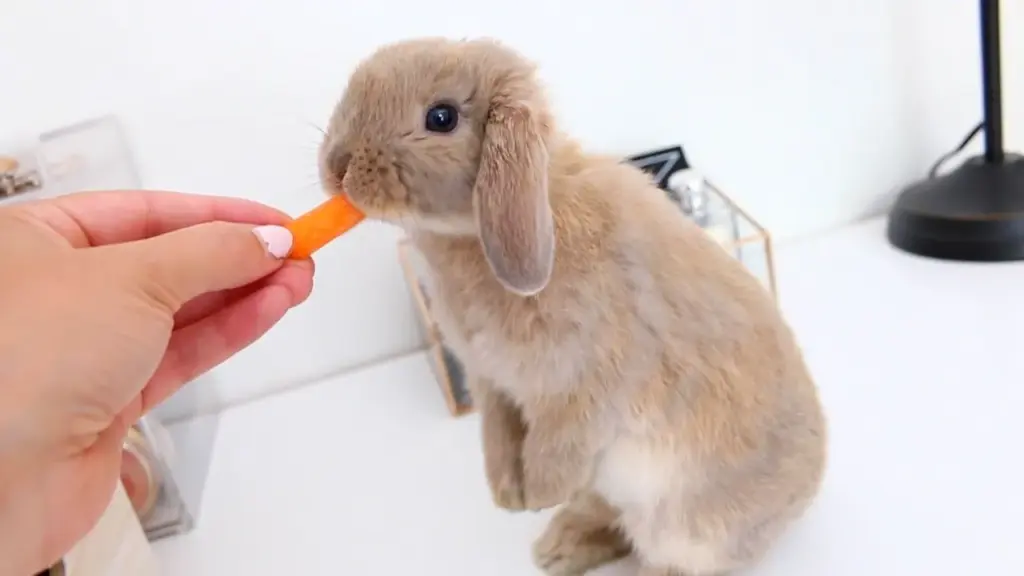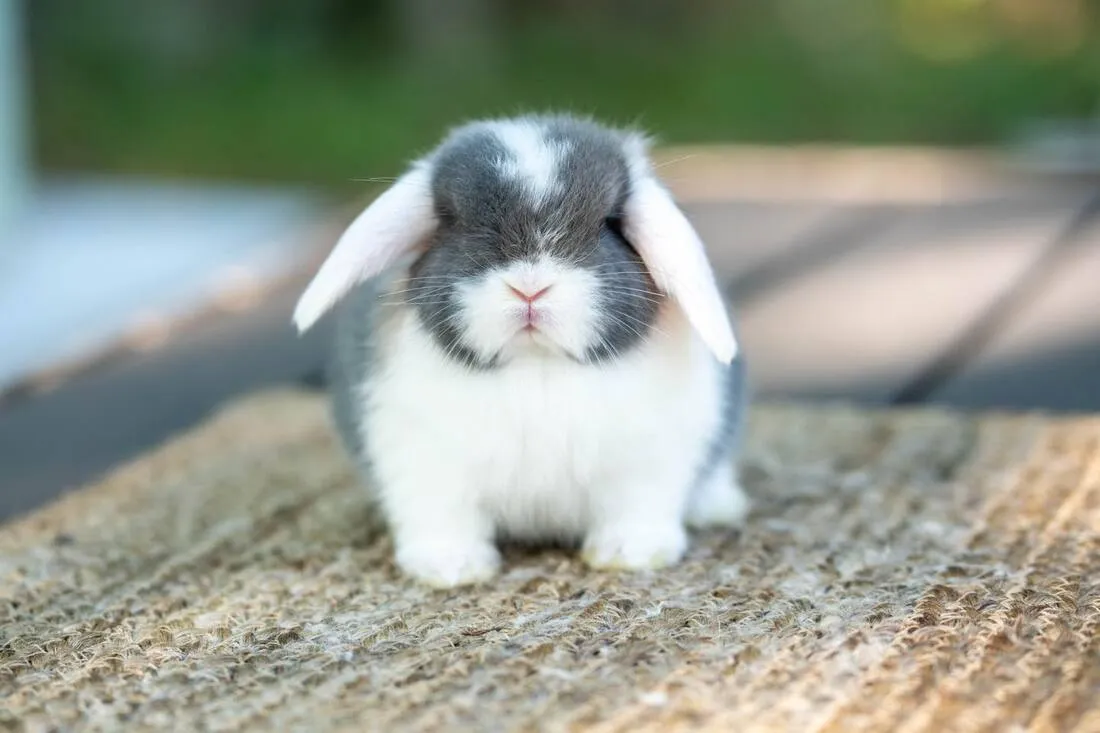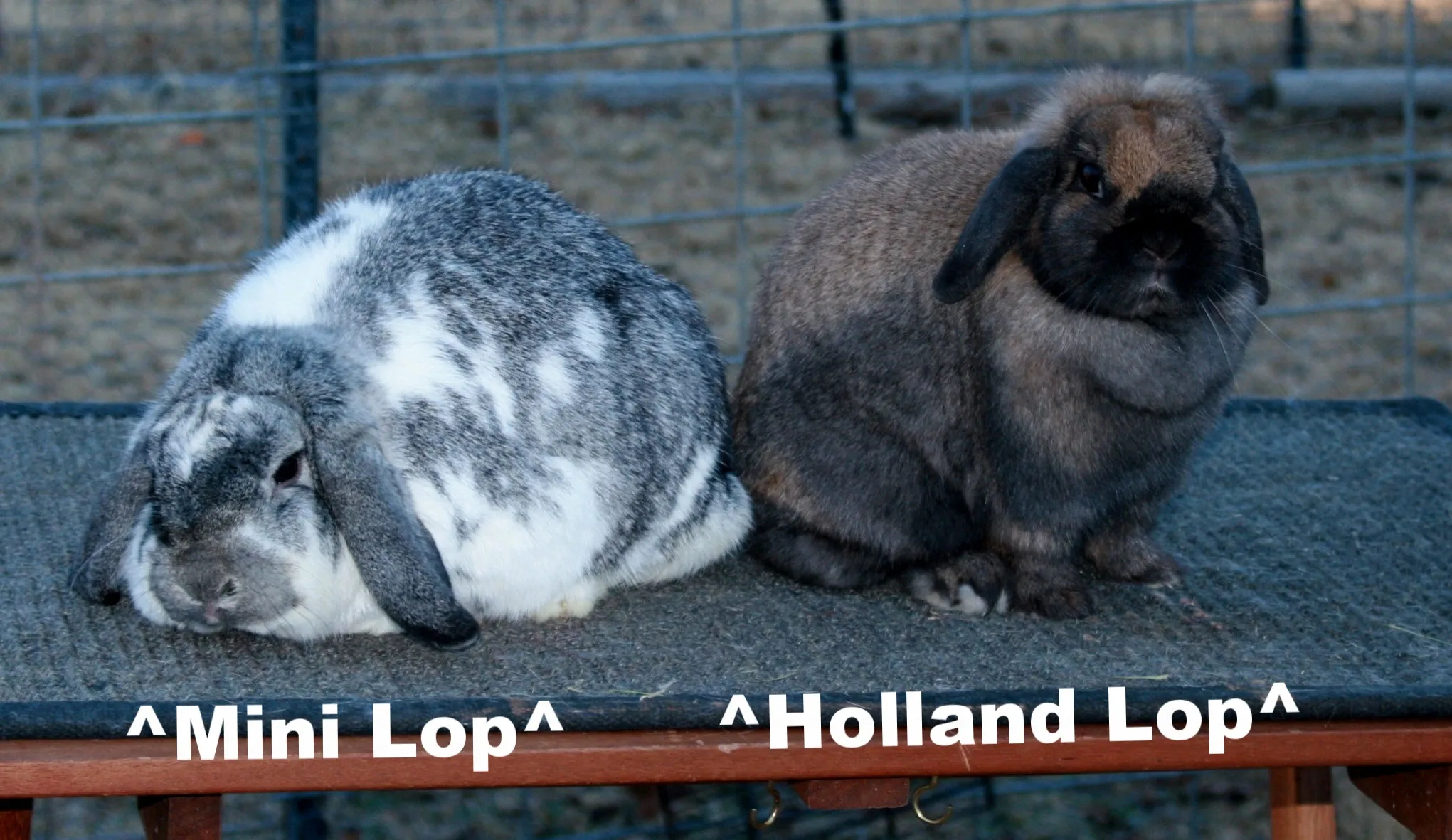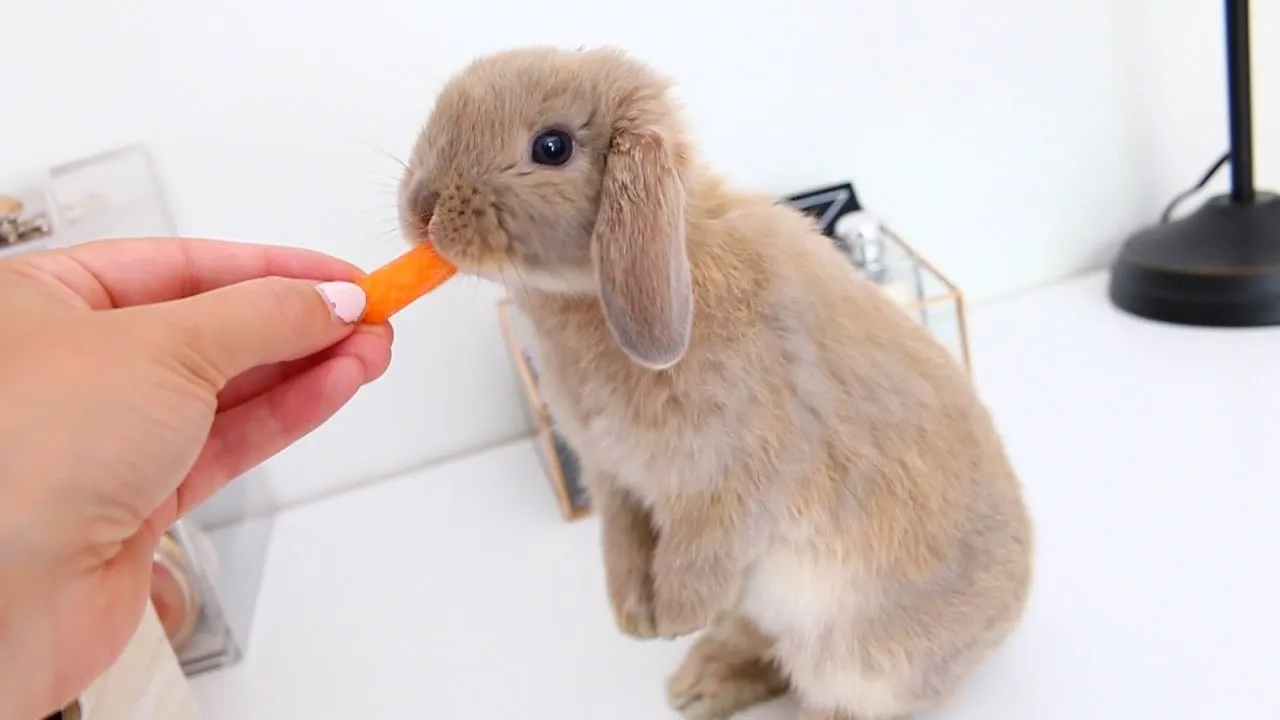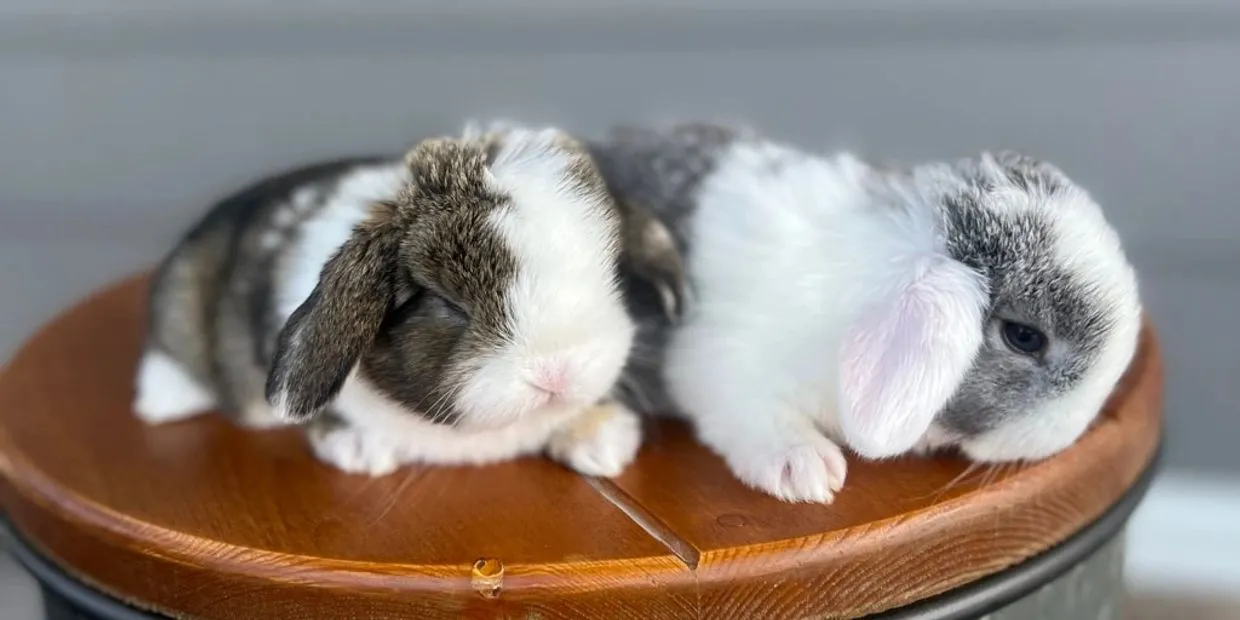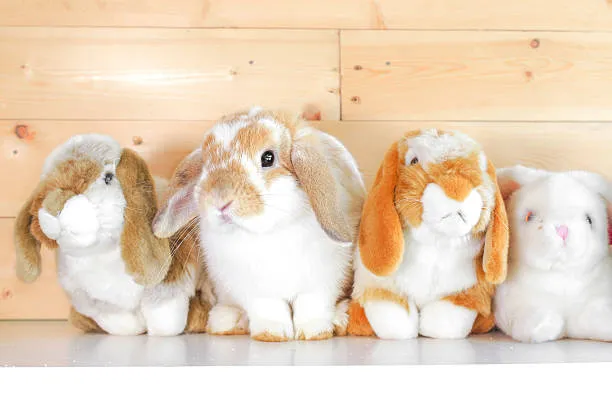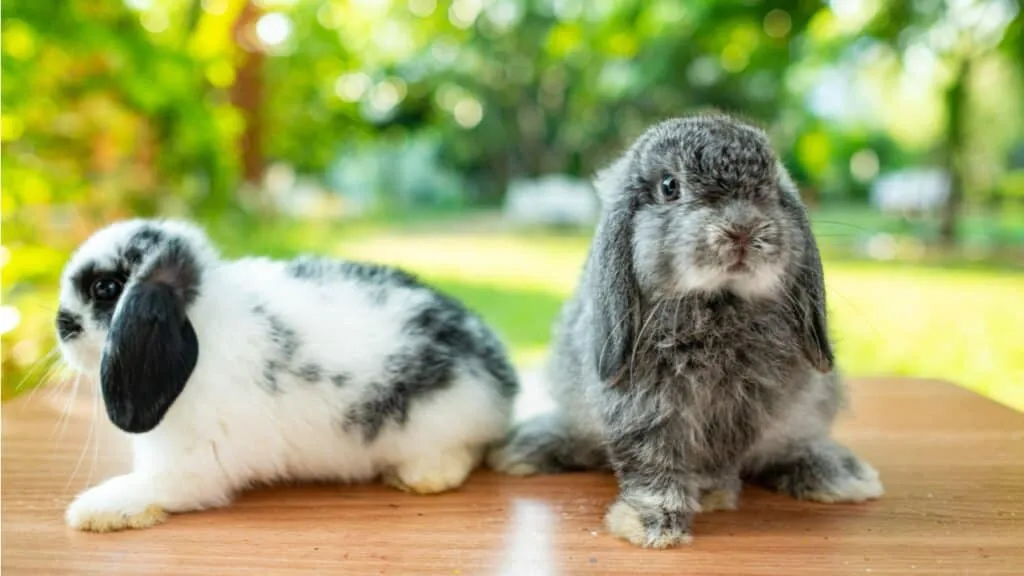Holland Lop rabbits are the global number one rabbit pet breed. Holland Lops have enchanted rabbit owners for generations with their adorable floppy ears, sturdy build, and affectionate personality.
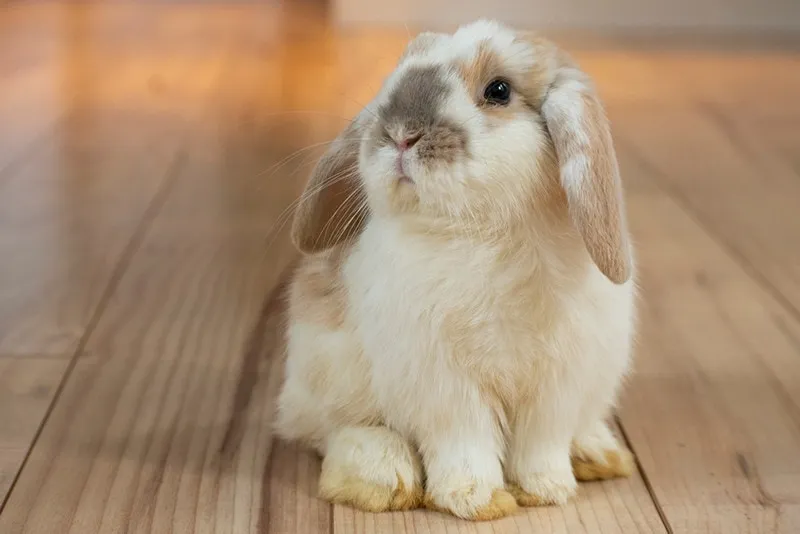
Holland Lop rabbits provide more than an attractive face; they provide companionship, charm, and personality to make them ideal pets for families and individuals alike.
If you’re contemplating getting one or just curious as to why on earth they are so popular, then this entire Holland Lop rabbit guide will be worth every penny spent.
The Holland Lop was bred in the Netherlands in the 1950s and was a huge success globally because it’s such a great-tempered pet and compact in size. It gained even more popularity after, in 1979, the American Rabbit Breeders Association (ARBA) accepted it.
It has become a greatly desired face among rabbit breeders and split into pet shows, rural dwellings, and country-wide breeding of rabbits.
Holland Lop Rabbits Physical Characteristics
Holland Lop is among the lop-eared rabbits that are the smallest and weigh between two and four pounds as adults. Their standout feature is ears that are lopped, hanging in a flowing fashion with the head rather than being high up. The ear is completed as the rabbit grows, typically at twelve weeks of age.
They are small, dense rabbits and have been described as being approximately the size and shape of a small round box.
They have a close, compact coat of fur, which can be effectively any combination of colours and markings, ranging from more traditional solid ones like black and brown to broken ones with a mixture of lots of colours. This makes every Holland Lop one of a kind, and thus an excellent pet.
Their face is typically wide and expressive large eyes, so that they possess an ageless innocence as well as a halo of inquisitiveness. Their innocence, added to their long-legged physique, renders them an extremely popular pet.
Temperament and Household Behaviour
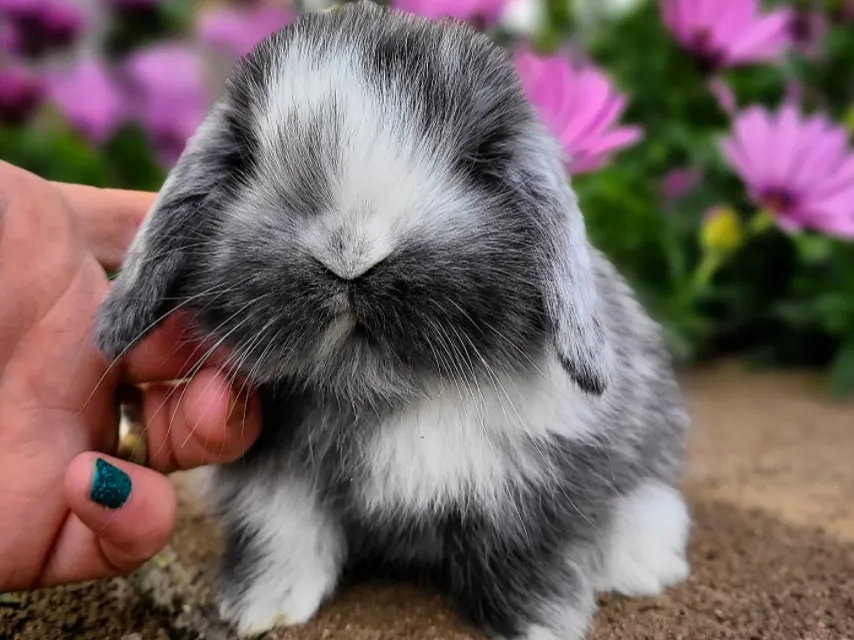
Holland Lop is greatly accustomed to being gentle and friendly by nature. The cute rabbits are human-friendly, love people, and will amazingly pamper humans. They warmly love the human touch and become deeply human-dependent, and they just love to be sweetly fondled and overly cuddled.
They are friendly and inquisitive too, and would go on exploring their surroundings with boundless energy and curiosity. Holland Lops love digging, running freely in huge open spaces, and chewing hard toys to pieces.
Their social nature, combined with their friendly temperament, makes them perfect jewels for kids and adults.
While overall calm, Holland Lops will stress in very noisy or disturbing environments. Creating safe, quiet refuge areas where they can retreat to and come back to when stressed is essential.
They will learn to get used to the household noise and other household pets if properly socialised early enough.
Facilities for General Good Health and Happiness
Keeping your Holland Lop in a secure and safe home is the most essential part of its health and well-being. Holland Lops can either be kept indoors or outdoors, but most authorities recommend that they be kept indoors where environmental and temperature hazards are more manageable.
Their cage must be big enough so that they have space to move around in it, for a litter box, food and water bowls, toys, and a sleeping area. It must be hard-bottomed, not wire mesh, as this will cause foot issues.
The cage must be cleaned every day so garbage doesn’t pile up and cause odours and health issues.
They require daily exercise, as does their cage. Ideally, their choice would be a bunny-proofed playroom or playpen. They require daily play for the body and also mentally, and to engage with their human family.
Diet and Nutritional Needs of Holland Lops
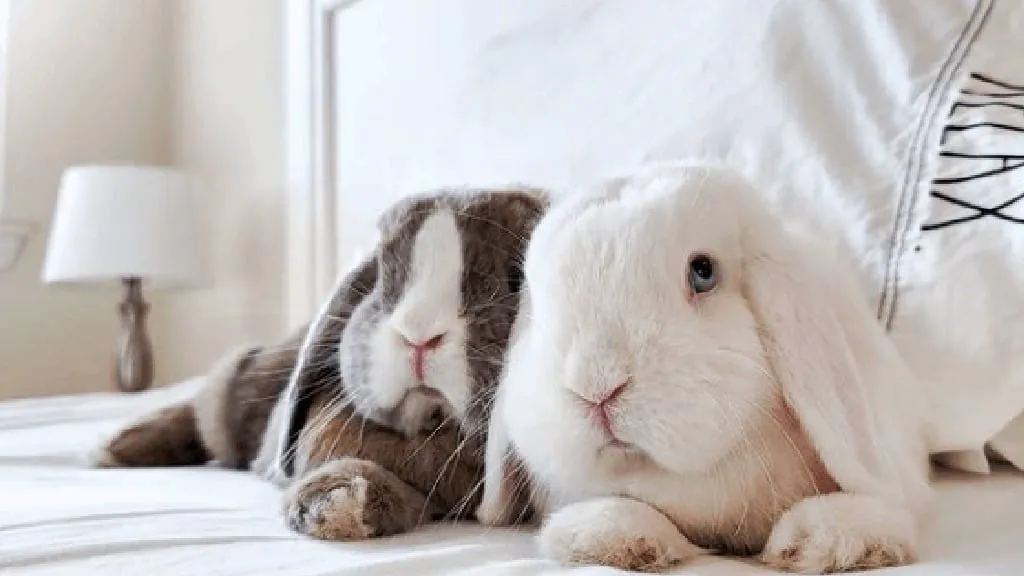
The right kind of diet is very crucial to the well-being and quality of life of the Holland Lop. Hay should be the main ingredient in their diet so that they would be able to digest their food well and take care of their continuously growing teeth.
Timothy hay is best for an older bunny, but alfalfa hay is best for bunny rabbits because it contains a little more protein and calcium content.
Brassicas like greens do need a small amount of supplementation and need to be administered daily. All of them are part of your rabbit’s diet, providing essential nutrients found in vegetables and hay. Provide your rabbit with free access to fresh water at all times.
Do not give your rabbit sweets, fast foods, or toxic plants. Also, watch what they do and what they eat. Loss of appetite or bowel abnormality is an indication of illness and will result in a doctor’s visit.
Grooming and General Care Needs
Holland Lows have a low-shedding, short coat that must be brushed regularly in an attempt to prevent matting and gulping in shedding season. They must be brushed weekly, though really bad shedding seasons may require more.
Their nails should be trimmed every so often, and their ears checked for mites or infection. Their teeth should also be checked because over the entire course of their lifetime, their teeth continually grow.
Chew toys and fibre chew chews will slowly wear down their teeth and also guide them away from dental issues.
Routine checkup with a physician who knows rabbits will place you at the head of the class in terms of potential health issues. Gastrointestinal stasis, dental disease, and ear infections are some health issues to monitor.
Spaying or neutering your rabbit not only prevents unwanted breeding but also conditions the pet to a healthier, longer life.
Training and Socialisation Tips for New Owners
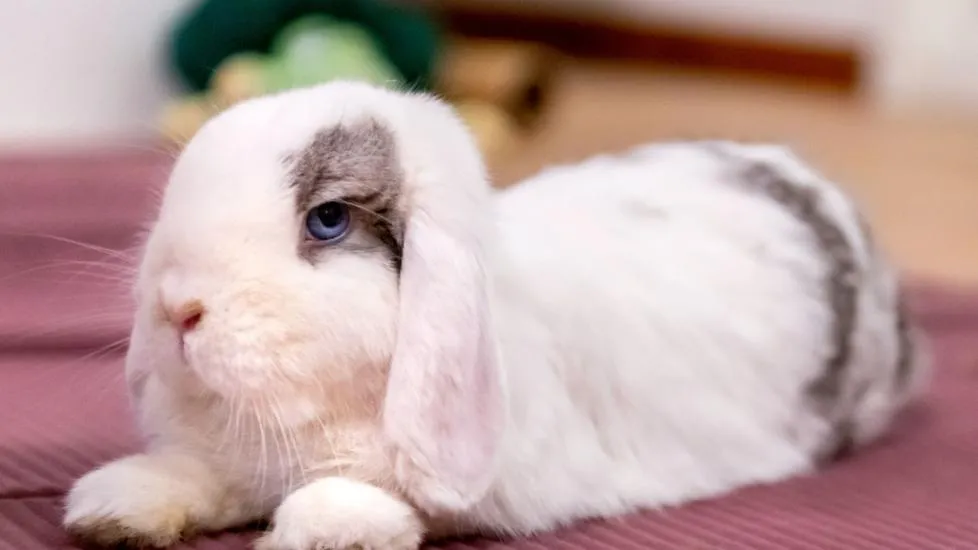
It’s pure delight to train a Holland Lop rabbit. Holland Lops are smart animals and can learn to obey simple obedience commands, litter training, and even tricks if they’re given with good reinforcement and consistency. Reward-based positive reinforcement with treats and praise is the recommended method.
Start socialising your rabbit early when they are young by carrying them and exposing them to diverse environments, sounds, and people. The more their exposure is when they are young, the bolder and stronger they will become when they grow up.
Litter training is not necessarily evil if they are already spayed or neutered. Place the litter box in one corner of their hutch and notice where they naturally go. Empty the box daily and keep their home clean to reinforce good habits.
Breeding and Reproduction Considerations
Breeding Holland Lops should be done by a professional breeder. If you are not a professional breeder, you are advised to let the breeding be done by professional breeders. Amateur breeding would have the mother and kits developing health and behavioural problems.
When mating, they should be well-tempered, same age, and healthy. They should be bred such that they are as far from each other as possible to prevent transmission of inherited genetic illness. Does or males should be bred once they become adults, and that only after six months.
Responsible breeders value animal welfare and have baby bunny care or adoption plans. When buying a bunny from a breeder, consider questioning them about breeding ethics and methods.
Know the Lifespan and Ongoing Care
Holland Lop is a seven-to-ten-year lifespan rabbit that can live even longer if well taken care of. It costs money, time, and emotions to raise a bunny and is a multi-year project.
These rabbits are given peaceful homes whose schedules are never disrupted and whose needs are always met. In case you ever go away from town or stay away from home, make sure you have a reliable person looking after your pet away from home.
Regular veterinary visits, a balanced diet, proper housing, and plenty of love and attention are the cornerstones of a long and healthy life for your Holland Lop. If you’re ready to commit, the joy of having one of these affectionate creatures as part of your family is truly unmatched.
Conclusion
In all respects, the Holland Lop rabbit is the very symbol of innocence, love, and beauty. With its docile nature and unique appearance, it is one of the most wonderful pets for any rabbit enthusiast, no matter how experienced they might be.
If kept in good conditions, a Holland Lop will be your friend for many years to fill your life with joy and companionship.
If you desire a new pet or simply an additional adorable furry family member, Holland Lops are coupled with happiness that no other animal can even try to rival.
Their cheerful attitude, affectionate personality, and their capacity to be best friend-like best buddies with human family members make it one heck of a pet to one who is willing to provide it the proper care and attention that it rightfully deserves.

